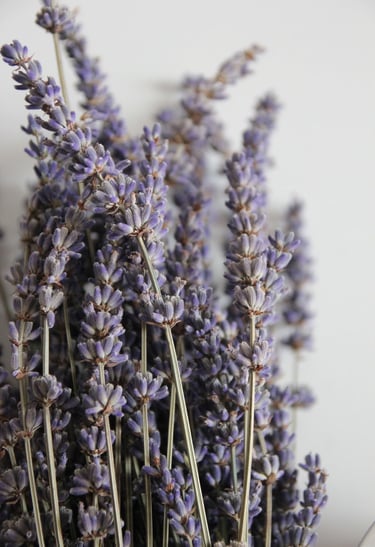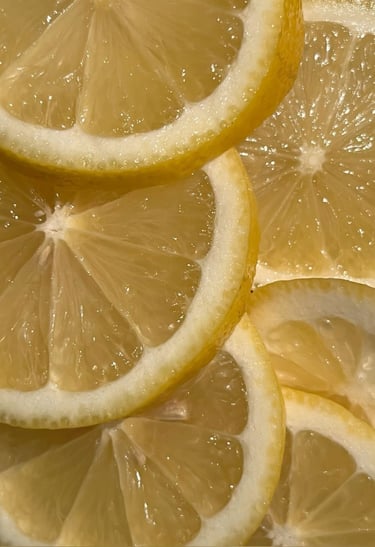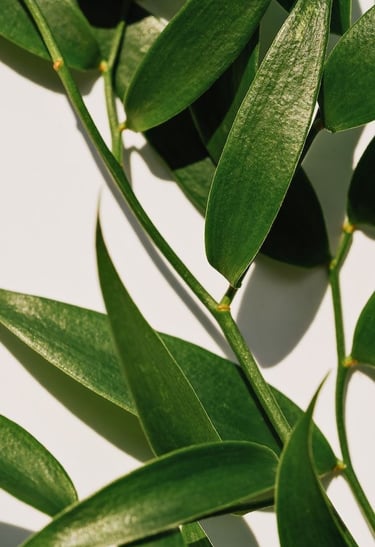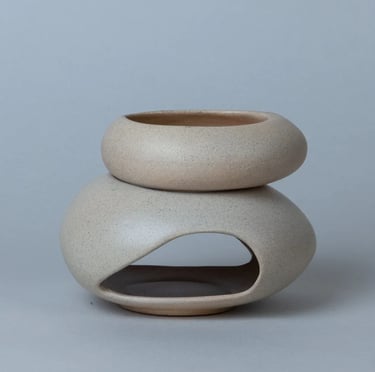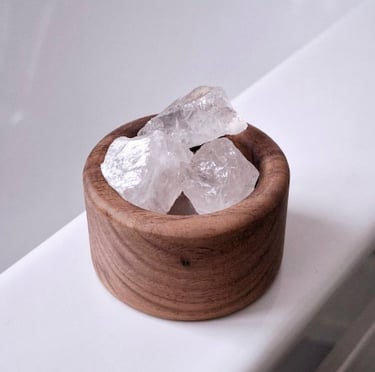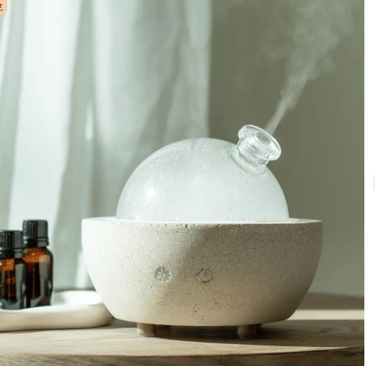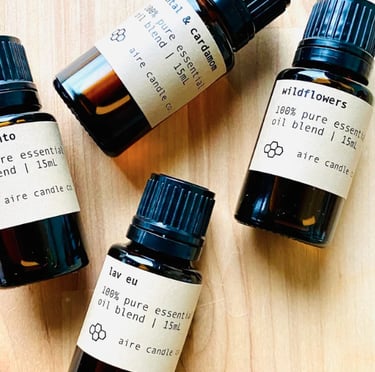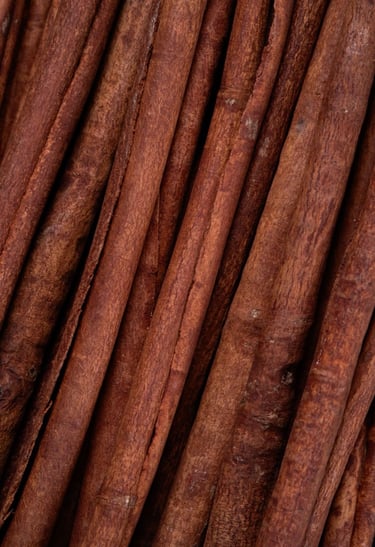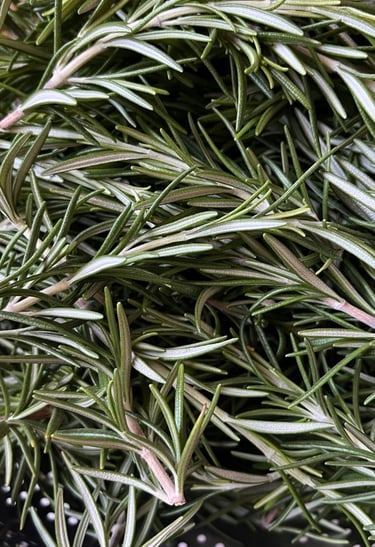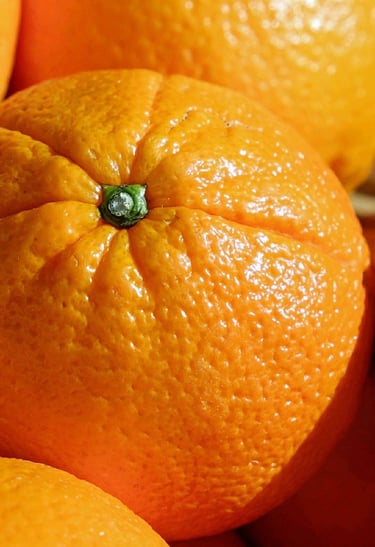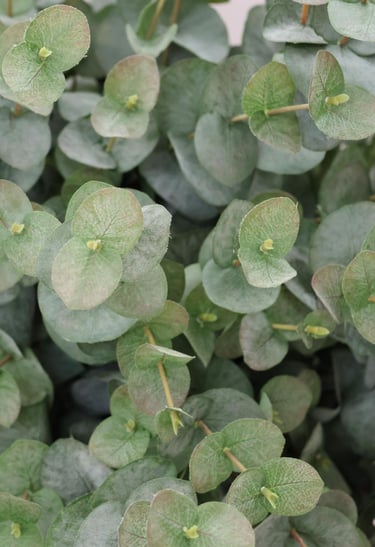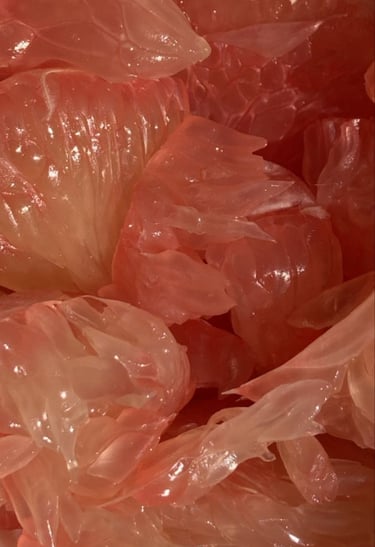Essential Oils: A Beginner’s Guide to Aromatherapy Benefits & Uses
WELL
If you’re looking for natural ways to freshen your home, ease headaches, calm anxiety, or enhance your skincare routine, essential oils are a fantastic choice. They can replace harsh chemical cleaners, fill your space with uplifting scents, soothe tension, and nourish your skin—all naturally. Plus, aromatherapy is an easy and enjoyable way to tap into these benefits, helping you feel more relaxed and balanced every day.
So, let’s dive in! Here’s a beginner’s guide to essential oils, what benefits they offer, and the top 10 oils you should know about.
MAY 22, 2025
What Are Essential Oils?
Essential oils are highly concentrated natural extracts taken from various parts of plants — including leaves, flowers, bark, roots, and seeds. They capture the plant’s unique scent and therapeutic properties, making them a powerful tool in holistic health and wellness. Used for thousands of years, essential oils are popular in practices like aromatherapy, massage, and natural skincare because they can help support physical health, emotional balance, and mental clarity. Whether inhaled, applied to the skin, or added to a bath, these oils offer a gentle yet effective way to connect with nature’s healing power.
A Brief History
Essential oils have a rich history dating back thousands of years, with evidence of their use in ancient Egypt, Mesopotamia, Greece, and Rome. These cultures prized essential oils for their medicinal, spiritual, and cosmetic benefits. For example, Egyptians used them in embalming, skincare, and religious rituals, while the Greeks and Romans applied them for healing and relaxation. Traditional healing systems such as Ayurveda and Traditional Chinese Medicine have also relied on plant extracts for balancing the body and mind. Over centuries, essential oils became integrated into natural remedies and home care practices around the world. Today, aromatherapy brings this ancient knowledge into modern wellness routines, offering a natural, holistic way to support physical and emotional health.
What You Need to Know Before You Start
Essential oils can be amazing for your wellness—they might help you sleep better, ease anxiety, reduce pain, calm nausea, and just help you feel more relaxed overall. But before diving in, there are some important things to keep in mind to use them safely and effectively.
Use with Purpose
Think about why you want to use essential oils. For example, if you want to feel less stressed out and sleep better, go for calming oils like lavender, chamomile, basil, or frankincense. If you need a pick-me-up, energizing oils like peppermint or bergamot can help lift your mood and boost your energy.
Safety First
Always dilute essential oils with a carrier oil before putting them on your skin. They’re super strong and can cause irritation if used undiluted
Some oils make your skin extra sensitive to sunlight (this is called photosensitivity), which can lead to redness, burns, or discoloration. These include citrus oils like lemon, lime, grapefruit, bergamot, and others. If you use these on your skin, avoid direct sun or tanning beds for 12-24 hours afterward.
If you’re pregnant, have allergies, sensitive skin, or take medication, chat with a healthcare professional before using essential oils. Some oils can cross the placenta or interact with medicines.
Picking Good Quality Oils
Not all essential oils are created equal. The best ones show the Latin name of the plant, where the plants were grown and statement confirming purity. Look for trusted brands, and do a little research to make sure you’re getting real, high-quality oils. You’ll find them in aromatherapy shops, health stores, and even some grocery stores.
Inhalation: Breathe in the aroma using a diffuser, add a few drops to a steaming bowl of water, or simply open the bottle and inhale. This method is fast-acting, gentle on the skin, and especially helpful for emotional support, focus, or respiratory relief.
Topical Application: Apply diluted essential oils to pulse points like your wrists, neck, behind the ears, chest, or along the spine. This method is great for targeted relief (like sore muscles or tension) and for experiencing the aroma as a natural perfume throughout the day. Always dilute with a carrier oil to avoid skin irritation.
Oral Use: Some essential oils can be taken internally—added to water, a teaspoon of honey, or a veggie capsule—but only under the guidance of a qualified practitioner or if the oil is clearly labeled as food-grade. Internal use is powerful but should be approached with caution and knowledge.
How to Use Them
Best Places to Apply Essential Oils on Your Skin
Essential oils can do wonders when used on the body — from calming your mind to soothing your muscles. Here are some of the most effective ways to use them topically:
Pulse Points: Apply diluted essential oils to areas like your wrists, temples, behind your ears, neck, or over your heart. These spots help release the aroma gradually and can support mood, focus, or relaxation throughout the day.
Chest & Spine: For respiratory support or deeper emotional effects, apply oils to your chest or along the spine. These areas are close to the nervous system and can help the oil work more deeply in the body.
Massage: Blend essential oils with a carrier oil (like jojoba or coconut oil) and use them for a full-body or targeted massage. This helps relieve tension, improve circulation, and promote relaxation.
Abdomen: Oils like peppermint or ginger can be diluted and gently massaged onto the stomach to support digestion or ease cramps.
Bottoms of the Feet: This is a great place to apply oils because the skin is less sensitive and full of absorption points. It’s perfect for bedtime blends or immune support.
Bath Soaks: Add a few drops of essential oil (diluted in bath salts or carrier oil) to your bathwater. It’s a gentle way to nourish the skin while soaking in calming aromas.
Frankincense is known as the “king of oils.” It has a rich, warm scent and tons of benefits, which is why it’s one of the most precious and loved oils out there. Ancient Egyptians used frankincense resin for perfumes and healing balms hundreds of years ago.
Why it’s great:
Soothes skin and helps reduce blemishes
Gives your skin a hydrated, refreshed feel
Brings a peaceful, calming vibe that helps you relax
Its scent can lift your mood and help you feel balanced
How to use it:
Rub (diluted) on your chest, neck, or spine to relax
Add a drop to your face cream or oil for glowing skin
Diffuse while journaling or meditating
Top 10 Essential Oils
1. Frankincense
Peppermint is a natural wake-up call. It clears your head, helps with headaches, and even settles your stomach if you’ve eaten too much.
Why it’s great:
Boosts energy and mental clarity
Relieves headaches and muscle soreness
Calms upset stomachs
How to use it:
Inhale directly from the bottle for a quick pick-me-up
Rub (diluted) on your temples or neck to ease tension
Add a drop to water if it’s safe to ingest
3. Peppermint
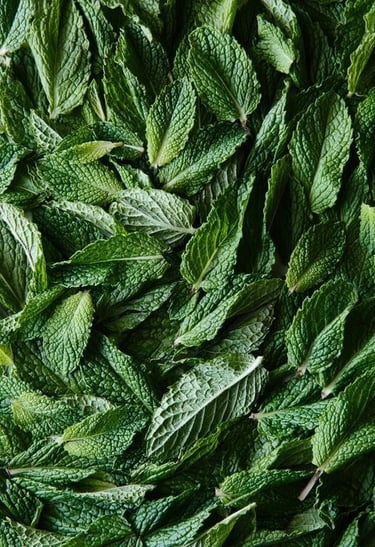

Lavender is like a cozy hug after a long day. It’s amazing for helping you relax, fall asleep easier, and calm skin irritations. No wonder it’s one of the most popular oils around!
Why it’s great:
Helps you wind down and reduce stress
Supports better sleep
Soothes minor skin irritations
How to use it:
Put a few drops in your diffuser before bed
Rub (diluted) on your wrists or neck when you need to relax
Add to your pillow or a warm bath to help you drift off
2. Lavender
Lemon is fresh, uplifting, and great for boosting mood and digestion.
Why it’s great:
Lifts your mood and clears your mind
Helps with digestion
Makes your home smell fresh and clean
How to use it:
Diffuse in the morning to start your day right
Add a drop to water or homemade cleaners (only if food-safe!)
Use in baking, like lemon cake or frosting, for a fresh zing
4. Lemon
Tea Tree is your natural first aid kit. It fights bacteria, helps with breakouts, and supports healthy skin and scalp.
Why it’s great:
Fights bacteria and reduces blemishes
Soothes skin and scalp issues
Great for natural cleaning
How to use it:
Dab (diluted) on pimples or skin irritations
Add to shampoo for a healthy scalp
Use in homemade cleaning sprays for your bathroom or yoga mat
5. Tea Tree
Cinnamon wraps you in warmth — spicy, cozy, and full of comforting energy.
Why it’s great:
Stimulates circulation and energy
Naturally repels bugs with its strong scent
Adds a festive scent to your home
How to use it:
Diffuse with orange in fall or winter
Rub (diluted) on feet or lower back (it’s strong!)
Use in holiday room sprays or DIY blends
9. Cinnamon
Earthy and energizing, Rosemary supports mental clarity, strong hair, and relaxed muscles.
Why it’s great:
Improves concentration and memory
Supports hair growth and healthy scalp
Relieves tired muscles
How to use it:
Diffuse while working or studying
Mix into hair oil or shampoo
Rub (diluted) on sore muscles
7. Rosemary
Eucalyptus oil is known for its clearing and cooling properties, making it a go-to for stuffy noses and tired minds.
Why it’s great:
Lifts your mood and eases anxiety
Aids digestion
Smells just like fresh oranges because it’s made from cold-pressed peels
How to use it:
Diffuse during the day for a happy vibe
Rub (diluted) on wrists if you feel stressed
Add a drop to tea(only if safe to ingest)
8. Sweet Orange
Eucalyptus oil is known for its clearing and cooling properties, making it a go-to for stuffy noses and tired minds.
Why it’s great:
Clears nasal passages and eases breathing
Helps fight colds and congestion
How to use it:
Diffuse when you have a stuffy nose
Put a drop in the shower to breathe in the steam
Rub (diluted) on your chest or back for relief
6. Eucalyptus
Grapefruit is fresh, zesty, and energizing — great for metabolism and reducing cravings.
Why it’s great:
Boosts energy and metabolism
Helps reduce appetite
How to use it:
Diffuse in the morning to wake up
Rub (diluted) on belly or thighs
Add to water if it’s food-safe


